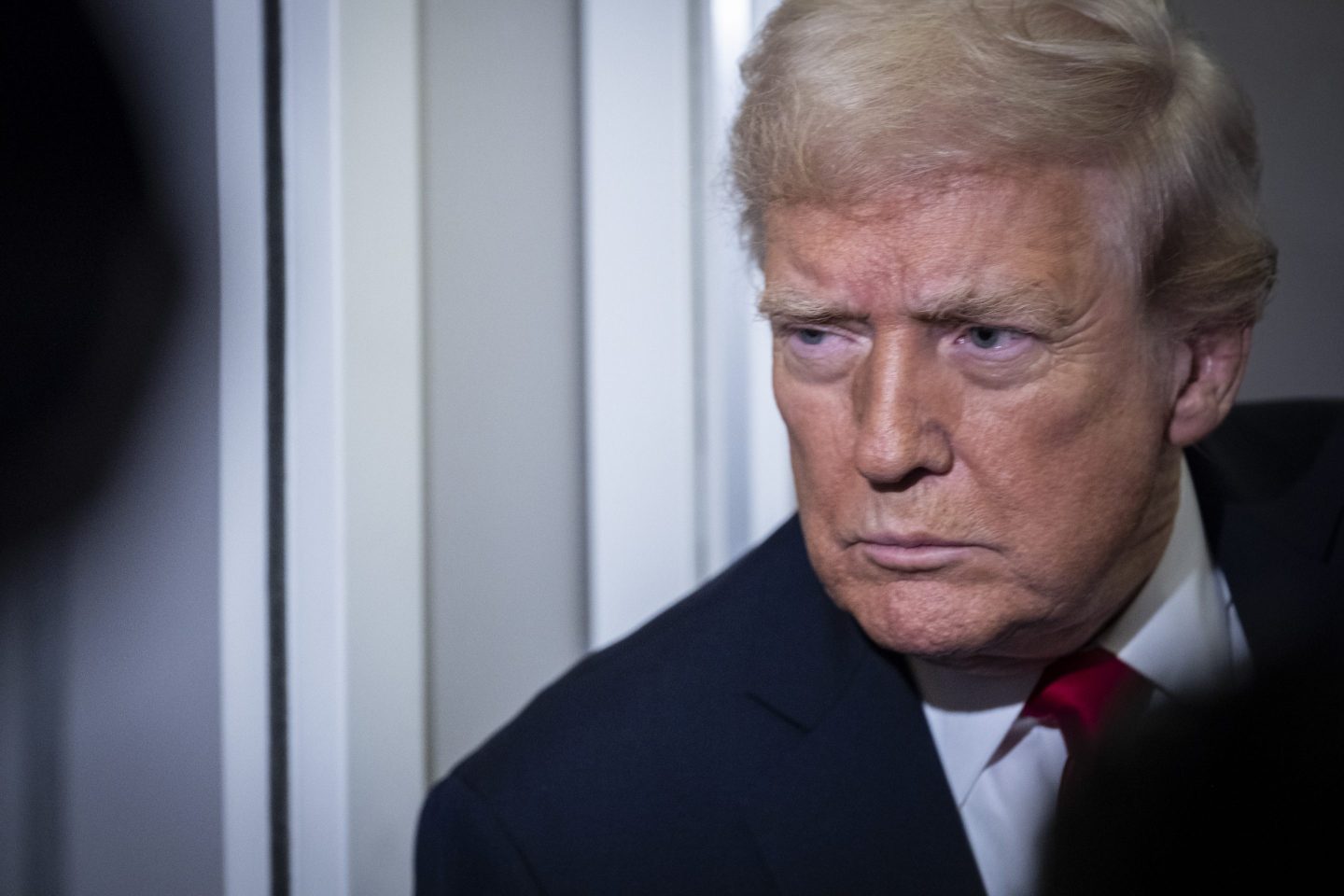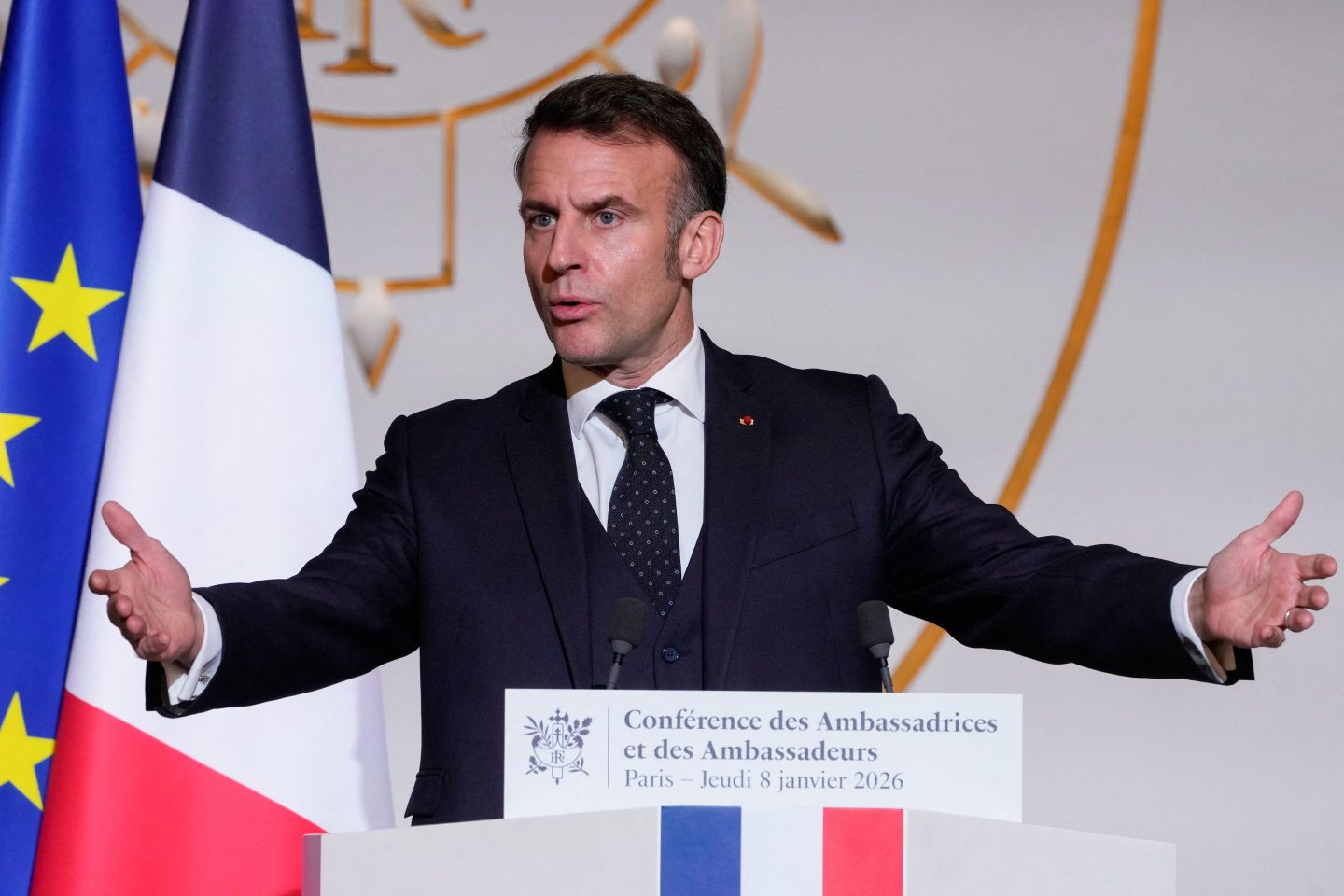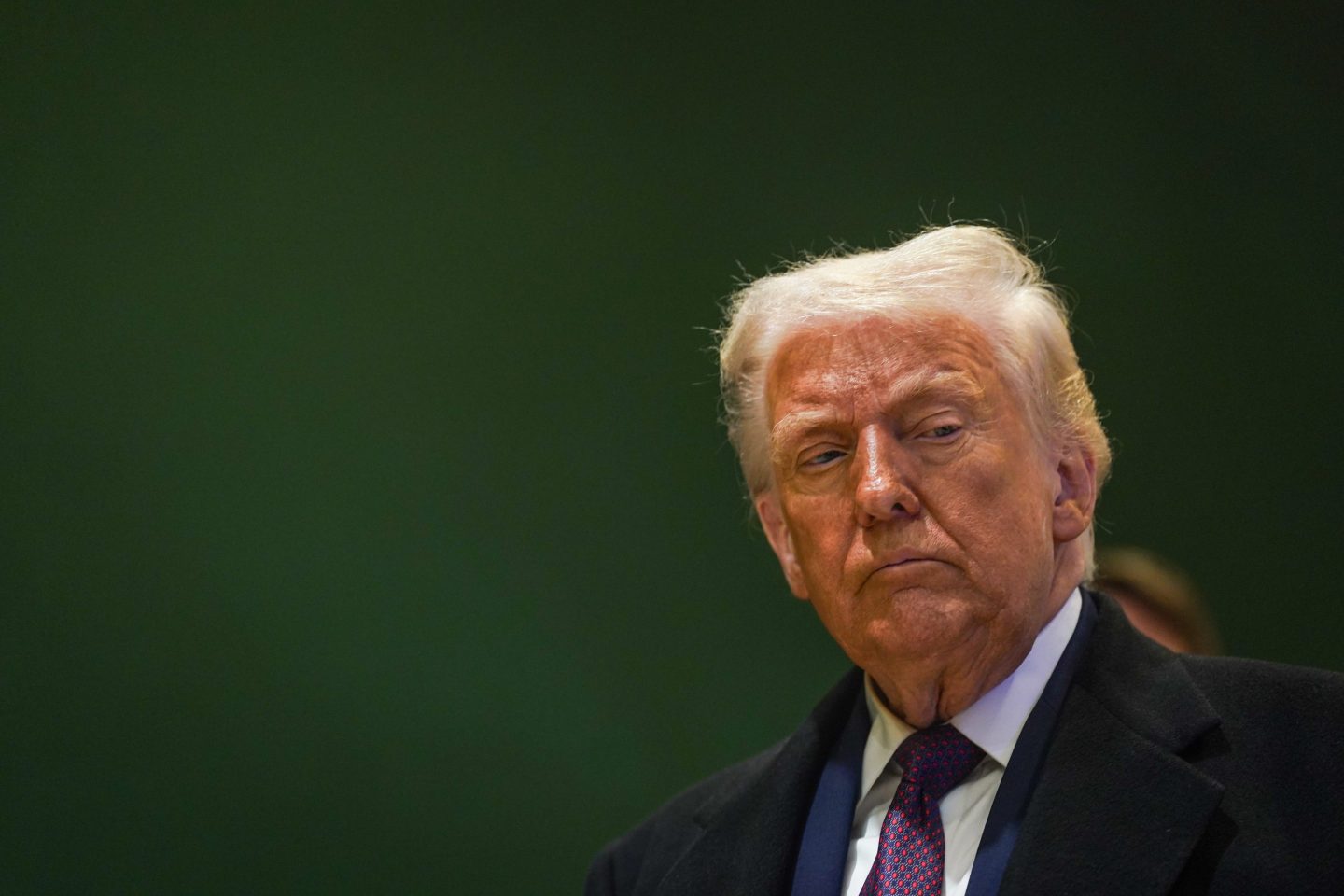When Donald Trump welcomes the Group of 20 to his private golf resort in Miami next year, he’ll decide who’s on the guest list.
That much is clear after the US president said in a social media post Wednesday that he won’t invite South Africa, the holder of this year’s G-20 presidency and the object of the US president’s ire for some time now.
It may be a breach of long-established protocol for a leader to decide which of the bloc’s members can attend the summit — let alone to host the event at their own hotel — but Trump has demonstrated that he cares little for either convention or the multilateral order.
Now, questions over who will and who won’t go are starting to pile up, not least over which nation might make up the numbers. The move puts other G-20 members in a bind: ignore the insult and make the trip anyway, or stand in solidarity and risk the full force of a Trump blowback in trade tariffs, technology embargoes or worse.
“This is one of the most important multilateral forums we still have in the world,” and a format that “we should not diminish unnecessarily,” German Chancellor Friedrich Merz said in Berlin on Thursday, when asked about Trump’s comments.
By boycotting last weekend’s summit in Johannesburg “the American government unnecessarily relinquished influence, including in a part of the world that is becoming increasingly important,” said Merz.
South Africa had been bracing to be blocked from the summit at the Trump National Doral Golf Club, and officials there remain concerned that the US could seek to boot the country entirely from the group. Still, any change in membership would require consensus among G-20 nations, as was the case before the 2023 summit in India, when the African Union was admitted as a full member.
The US leader’s outburst caps a feud with President Cyril Ramaphosa sparked by Trump’s repeated claims, made without evidence, that South Africa was committing genocide against White Afrikaners. Ramaphosa tried to persuade Trump to stop floating the conspiracy theory during a visit to the White House in May, and was instead ambushed by a video montage amplifying the claims.
The treatment of Africa’s largest industrialized economy, the first African host of the G-20, highlights the president’s tendencies to use the cudgel of the US’s global position for domestic political ends.
South Africa “does not appreciate insults from another country about its worth in participating in global platforms,” according to a statement from Ramaphosa’s office which described Trump’s comments as “regrettable.”
They may also be damaging, as alluded to by Merz. By further undermining Washington’s standing with the countries of the so-called Global South, the risks is of playing into the hands of China and Russia, fellow members of the BRICS forum which Trump has denounced as anti-American.
“This bullying of major non-western states makes the task of China and Russia easier in winning wider support in the Global South,” said C. Raja Mohan, Distinguished Professor at the Institute of American Studies, Kindal University, Delhi. “There is nothing to suggest that Trump is eager to reclaim a leadership position in the Global South.”
It’s not clear how the US might enforce Trump’s ban on South Africa or any other nation’s participation, although presumably the State Department wouldn’t issue visas to officials seeking to attend.
Regardless, his rhetoric fits with a grander vision of remaking the global order as he sees fit, picking and choosing the membership of clubs with scant regard for other governments.
Only last week, the US dangled the possibility of inviting Russia back to reconfigure the old Group of Eight as part of a 28-point plan to end the war in Ukraine, catching Kyiv and its allies off guard. The G-8 became the G-7 in 2014 after Russia was thrown out over its illegal annexation of Crimea.
Others that might benefit from Trump’s graces include Poland, which has long clamored to be admitted to the G-20. Trump in September invited Poland’s new right-wing nationalist president, Karol Nawrocki, to the Miami summit in an unspecified capacity, heaping praise on the relative political novice and former amateur boxer whom he had endorsed in the election.
Poland has seen its economy exceed $1 trillion in size this year and has repeatedly won Washington’s plaudits for spending heavily on defense, mainly to buy US weaponry. Nawrocki’s credentials are further bolstered by seeing Poland’s security and future resting in stronger ties with Trump’s America rather than Brussels, in contrast to Prime Minister Donald Tusk, a former European Council president and longtime critic of Trump.
“Poland has been great, and the man who won the election is fantastic,” Trump told conservative TV channel GB News this month.
Whoever gets the nod for Trump’s Miami summit, his display of disdain for close partners likely presages what will be a “combative and uncooperative stance” during the US presidency, said Ziyanda Stuurman, a Cape Town-based geopolitical risk analyst and advisor at Africa Practice.
Stuurman sees the US using its chair to rip up the work espoused by previous presidencies on issues like climate, health and equality. Trump’s G-20 events “are unlikely to be framed or conducted as meetings between equals, but rather as a platform to showcase what the US believes to be the group’s limited utility for its own ends,” she said.
At worst, they may see a disregard for the multilateral world altogether in favor of one where Trump and Chinese leader Xi Jinping set the agenda, said Bill Emmott, author of “The Fate of the West.” Trump is set to visit China and meet with Xi in April during his G-20 presidency.
Trump’s America feels to some like a nightmare vision of “a coercive ex-partner that we cannot live without,” said Emmott. “But our even bigger nightmare would be if he turned out to favor a G-2 world, one in which far from fighting each other, the US and China decided to carve the world up between them.”












